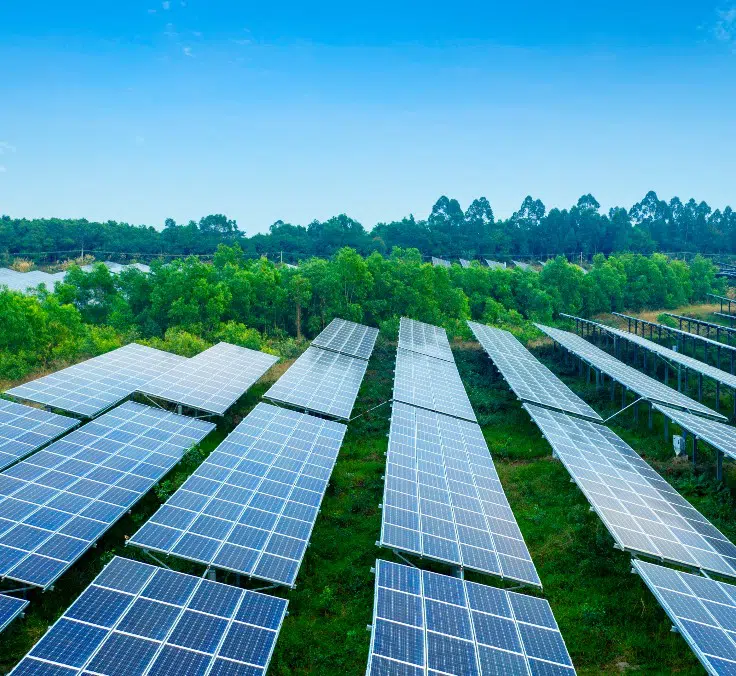SUSTAINABILITY| 04.05.2024
Sustainable finance: when shareholder returns are also the planet’s returns

Ramón Oliver
Socially responsible investment (SRI) is the Trojan horse that has allowed sustainability to creep into the very heart of global economic activities.
Since 2006, following the United Nations’ articulation of the Principles for Socially Responsible Investment (PRI), investments associated with ESG criteria (Environmental, Social, and Corporate Governance) have steadily expanded. This growth hasn’t been exponential, but it has been “sustainable,” as expected. According to Spainsif, in 2020, socially responsible investments (SRI) surpassed conventional operations, comprising 51% compared to 49%, marking a trend that has persisted with marginal fluctuations in subsequent years.
Green investments have also been put on an equal footing with non-green investment in terms of their rates of return. This is evidenced by the main international indicators, such as the MSCI World ESG Leaders Index, which places it at 12.75% compared to 12.81% for the general index (MSCI World Index). A technical tie, though in practice a victory for the former, as it undermines the primary argument of its detractors: that a “sustainable investment” may be sustainable but lacks attractive dividends for its investors.
Favorable winds
Several factors are contributing to the rise of green finance. Among them, growing environmental and social awareness, both on the part of society and of the business and financial community itself. In this regard, the Spanish Sustainable Finance Observatory (OFISO) states in a recent report that ESG factors have ceased to be a niche and have become a strategic factor within the governing bodies and boards of directors of companies.
International regulation is also clearly promoting a financial model that’s more in tune with the major challenges facing humanity, such as climate change, social inequalities, and business ethics. Texts such as the European Union’s Environmental Taxonomy, the MiFID II regulation, and the recent Sustainable Finance Disclosure Regulation (SFDR) are bringing homogeneity, transparency, and legal certainty to these types of operations, resulting in greater investor interest in them.
Nevertheless, regulatory changes aren’t the sole development observed in this financial realm. As SRI has transitioned from a singular phenomenon to a widespread trend, the array of environmentally friendly products entering the market has also become increasingly sophisticated and expansive. In addition to the already established green bonds or ESG mutual funds, newer alternatives have emerged, including carbon bonds, solidarity mutual funds, environmental impact insurance, sustainable ETFs, and impact investments.
Fintech applied to sustainability is also driving this growth. From platforms for sustainable investment, which simplify the process for small investors to construct a tailored portfolio, to AI tools for analyzing ESG performance, asset tokenization, or blockchain applications, technology has entered the SRI universe in a big way, greatly expanding its scope and possibilities.
Good for investors, good for the planet
Sustainable investment is a key instrument for the future of humanity. It’s the lever that has allowed environmental issues to be effectively and organically introduced into financial markets and, through them, into economic activities in general.
Its rise is enabling more and more sustainably oriented initiatives to source the financing they need to become a reality. Whether it’s the installation of renewable energy plants, reforestation schemes, or projects to support vulnerable communities and groups, the potential for financial markets to support projects that generate social and environmental value, rather than purely speculative ones, has increased exponentially.
Another advantage of SRI is that it enables companies to align their social and environmental action with their economic objectives based on very precise metrics. This has made it easier for companies such as MAPFRE to define public investment commitments aligned with its Sustainability Plan 2022-2024.
Among these commitments is the transition to a low-carbon economy, which the company is working to achieve by launching mutual funds in alternative assets such as renewable energies, real estate, and ESG infrastructures. In addition, the insurance company has drawn up a series of red lines, such as not investing in companies in which 20% or more of their revenue and/or generation comes from energy produced from coal.
MAPFRE also has specialized funds, such as “Inclusión Responsable,” which focuses on companies committed to the inclusion of people with disabilities, or “Capital Responsable,” which concentrates on companies and entities prioritizing ESG criteria in their strategies. With these products, the company seeks to combine financial profitability with the advancement of environmental and social improvements.
Security in times of uncertainty
Another factor that renders SRI an especially appealing option for financial markets—particularly amidst the present context of pronounced geopolitical, energy, or economic volatility—is security.
Because they are based on projects with strong social backing and a long-term outlook, the behavior of this type of investment is more stable and resilient in the face of possible destabilizing factors.
An example of this is the funds managed by MAPFRE AM, the Group’s fund manager. Sustainability criteria are already embedded in all of them, which means that transforming them into Article 8 and 9 funds, as per the new regulations mentioned above, is often merely a legal formality. Up to now, the funds falling withing this category were the MAPFRE AM Inclusión Responsable and MAPFRE AM Capital Responsable funds, as well as MAPFRE Energías Renovables II, an alternative asset fund that invests in biomethane, a 100% green biofuel obtained from animal and plant waste that can be injected directly into the natural gas network, generate electricity or used as fuel. In recent weeks, additional funds from MAPFRE AM’s range have been incorporated into these categories, with more to come.
But MAPFRE’s commitment to sustainable finance goes far beyond the product itself. In 2017, we signed up to the United Nations Principles for Responsible Investment (PRI), and as part of this commitment, we develop new investment products for our clients that comply fully with ESG principles and criteria. Currently, approximately 90% of the assets on the Group’s balance sheet have high or very high ESG valuations.
RELATED ARTICLES:



